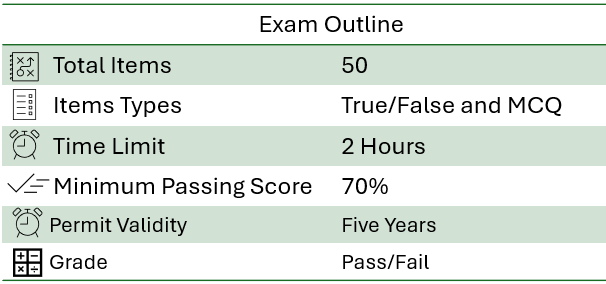Last Updated on September 11, 2025
FREE Nevada CCW Practice Test 2025 Study Guide [PDF] Questions and Answers Quiz. The CCW class is very much like an introductory handgun course. You’ll cover fundamentals like sight picture, eye dominance, and all that basic pistol stuff.
Nevada requires a Concealed Firearm Permit (CFP) – commonly called a CCW permit – to carry a concealed handgun. Below is an up-to-date guide covering eligibility, the application process, fees, reciprocity, renewals, have restrictions, and recent statistics.
Nevada CCW Practice Test 2025
Eligibility Requirements
To be eligible for a Nevada CCW permit, an applicant must meet age, residency, training, and legal criteria:
| Minimum Age | 21 years or older (18–20 allowed only for active-duty U.S. military or honorably discharged veterans) |
| Residency | Nevada residents must apply in their county of residence. |
| Identification: | A valid Nevada driver’s license or state ID |
| Approved Training: | You must complete a state-approved handgun safety course and demonstrate competence with a firearm. |
| Legal Qualifications: | You must not be prohibited from firearm possession under state or federal law. |
Nevada is a “shall-issue” state – if you meet all the above requirements and pass the background check, the sheriff must issue the permit. Conversely, if you fall into any prohibited category, the application will be denied (or an existing license revoked) by law.
Written Test Requirement
The written test is not taken at the sheriff’s office. It’s administered by your certified firearms instructor during the required training course. When you take the Nevada CCW training class (the 8-hour course for first-time applicants or the 4-hour refresher for renewals), you must complete a written examination.
The written exam is designed to test your knowledge of:
- Safe firearm handling and storage
- Nevada firearm laws (where you can/cannot carry, use of force, penalties, etc.)
- Basic firearm operation and safety rules (loading, unloading, clearing jams, etc.)
- Justification for the use of deadly force and understanding of self-defense law
You must achieve a passing score (commonly 70% or higher, but some instructors may require 80% to pass). The written test usually consists of multiple-choice and true/false questions. Many instructors model the questions on the Nevada Revised Statutes (NRS Chapter 202) and the NRA safety rules.
If you fail the written or shooting test, you can usually retake the class/test until you pass (may require paying for another class session).
Nevada CCW FAQ
1. How long is the Nevada CCW class?
- For first-time applicants, the class is 8 hours.
- For renewals, the class is 4 hours.
2. What do I need to bring to the CCW class?
All you need is a valid driver’s license. The instructors provide the paperwork and guide you through it in class.
3. Is there a test in the Nevada CCW class?
Yes, but only for first-time applicants. It’s done together as a class, so it’s straightforward and stress-free.
4. What happens at the range qualification?
You’ll shoot 30 rounds at 3, 5, and 7 yards.
- Minimum accuracy: 77% (though 100% is preferred).
- The focus is on safe firearm handling and basic competency.
5. Do I need a holster for the range portion?
No, a holster is not required. It’s optional, but you do need at least 30 rounds of ammo and a couple of magazines.
6. I’m a beginner. Can I still take the CCW class?
Absolutely. The class is designed for all skill levels. Instructors cover handgun basics like sight alignment, eye dominance, and safe handling.
7. Where do I submit my paperwork after the class?
You’ll submit your paperwork at:
Las Vegas Metro Headquarters
📍 400 South Martin Luther King Boulevard
There, you’ll also:
- Get fingerprinted
- Get your photo taken
- Pay the $100 fee
8. How long does it take to get my Nevada CCW permit?
By law, Metro has up to 120 days. Some applicants receive theirs sooner (around 80–90 days), but many arrive right at the 120-day mark.
9. How much does a Nevada CCW permit cost?
The fee paid to Metro is $100. This is in addition to the cost of your CCW class.
10. Can I practice with a different firearm while waiting for my permit?
Yes. While waiting, many people test different carry guns. If you trained with a full-size pistol in class, this is a great time to try out compact or concealed-friendly options.
Official Sources for Nevada CCW Permit
- Las Vegas Metropolitan Police Department – Concealed Carry Firearm Permits (Clark County)
- Nevada Revised Statutes & General Nevada CCW Info
- Mineral County (Nevada) Sheriff’s Office – CCW Information
- Washoe County (Reno area) – CCW Application Instructions and Fees
- Douglas County (Northern Nevada) Sheriff – Concealed Weapon Permits
Nevada Sheriffs’ and Chiefs’ Association CCW Proficiency Test Booklet: Download PDF

